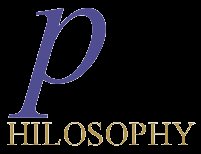


|
| ||
|
| ||

|
SILVER EDITION

|


|
SILVER EDITION |
This article appeared on the Philosophy Page of the Department of Philosophy of Queens College, CUNY Flushing, NY, seemingly by the end of 2001. (I archived the page on January 9, 2002.) It contains an introduction to "The Different Department", the Department of Philosophy. As far as I remember this was the first page the Department of Philosophy published on Cuny's website. Right now (summer of 2012) it is still online.
 Welcome to the Different Department
Welcome to the Different Department Philosophy, like most things important, eludes definition. We do know that the expression stems from two Greek words which, conjoined, may be translated as the love of wisdom. Philosophy, from the beginning, has been something that people have cared deeply for, and we know, too, that it has something to do with knowing--not knowing in the sense of merely being cognizant of large accumulations of facts, but knowing in the sense of "making sense of," in the sense of "understanding," the sense which draws a distinction between an individual who is content to be merely learned and one who seeks, beyond this, comprehension.
Philosophy, like most things important, eludes definition. We do know that the expression stems from two Greek words which, conjoined, may be translated as the love of wisdom. Philosophy, from the beginning, has been something that people have cared deeply for, and we know, too, that it has something to do with knowing--not knowing in the sense of merely being cognizant of large accumulations of facts, but knowing in the sense of "making sense of," in the sense of "understanding," the sense which draws a distinction between an individual who is content to be merely learned and one who seeks, beyond this, comprehension.
In this school, as in many others, there is a "department" of philosophy, as there is a department of anthropology, of sociology, of physics, and so on. In three ways this "departmentalization" of philosophy, however administratively convenient it may be, is misleading. First, philosophy is not a "department" in the same sense as other departments. Speaking of it as a department suggests that it is one department among many others, doing a similar sort of thing, marking out and claiming, and subjecting to empirical scrutiny its special square mile of cognitive territory, different from all others. This is incorrect. Philosophy is not a substitute for study in various empirical disciplines; rather, such study, or an awareness of the major findings in such disciplines, is a precondition for serious philosophy. Physics, chemistry, biology, psychology, economics, history and cultural studies all provide incomplete, important perspectives on individuals and realities. One of philosophy's jobs, whether it is done by philosophers or not, is the assembly and arrangement of these perspectives, the attempt to put together the pieces of the puzzle, to achieve a wholistic picture, a synoptic vision, a view of reality and meaning, of the world and humanity. Thus, philosophy is not in competition with particularistic disciplines but, on the contrary, depends desperately upon them. It would be empty and lost without them. Its role, however, is less that of being a "department" in the sense that, say, physics is a department, than it is of being a bridge among departments, a harmonizer and reconciler of the claims of various departments; it tries to take the hard-won, perplexing confetti of fact, the bricks and stones of empirical findings, and build from them a meaningful construction, one adequate to, and honest to, the integrated unity of reality, a reality which somehow contains not only molecules and dreams, pressures and gasses, but art, value and love.
 The second reason it is misleading to think of philosophy as a "department" is because philosophy is essential to, and permeates, all departments. Each field, each discipline, contains its assumptions, its criteria, its methodologies, its interpretive apparatus. These, in effect, constitute the "philosophy" or "philosophical matrix" of each discipline. Such considerations determine what is to count as being a portion of the discipline, what are to count as its valid procedures, what may be taken as evidence, what may be taken as having been established. The answers provided by any discipline presuppose a criterion as to what will count as an answer, how answers are to be sought, and when answers are to be accepted or rejected. Such fundamental questions, or metaquestions, are incapable of being resolved by the tools of the discipline, for the tools of the discipline presuppose them. These metaquestions are conceptually prior to the specialized questions, the answers to which depend in part upon them. Consider the following question: "What are the criteria of an acceptable scientific explanation?" That is not a question in science, but a question in the philosophy of science. Thermometers, balances and microscopes do not suffice to respond.
The second reason it is misleading to think of philosophy as a "department" is because philosophy is essential to, and permeates, all departments. Each field, each discipline, contains its assumptions, its criteria, its methodologies, its interpretive apparatus. These, in effect, constitute the "philosophy" or "philosophical matrix" of each discipline. Such considerations determine what is to count as being a portion of the discipline, what are to count as its valid procedures, what may be taken as evidence, what may be taken as having been established. The answers provided by any discipline presuppose a criterion as to what will count as an answer, how answers are to be sought, and when answers are to be accepted or rejected. Such fundamental questions, or metaquestions, are incapable of being resolved by the tools of the discipline, for the tools of the discipline presuppose them. These metaquestions are conceptually prior to the specialized questions, the answers to which depend in part upon them. Consider the following question: "What are the criteria of an acceptable scientific explanation?" That is not a question in science, but a question in the philosophy of science. Thermometers, balances and microscopes do not suffice to respond.
 The third reason it is misleading to think of philosophy as one department among others, in the same sense, is that philosophy concerns itself, often, with certain pervasive, general questions which do not admit of being confined within the walls of given specialties; they are questions which concern all human beings, and the human being as a rational, wondering animal, rather than the human being as, say, a physicist, a sociologist, an economist or anthropologist. What, in the final analysis, is the nature of reality? Does it have a meaning or purpose? Is there a Divine Entity? Is the human being free? Is the world a deterministic system? Is there an objective morality? Do I have moral duties? What are the limits, if any, of human understanding? What am I? What might I become?
The third reason it is misleading to think of philosophy as one department among others, in the same sense, is that philosophy concerns itself, often, with certain pervasive, general questions which do not admit of being confined within the walls of given specialties; they are questions which concern all human beings, and the human being as a rational, wondering animal, rather than the human being as, say, a physicist, a sociologist, an economist or anthropologist. What, in the final analysis, is the nature of reality? Does it have a meaning or purpose? Is there a Divine Entity? Is the human being free? Is the world a deterministic system? Is there an objective morality? Do I have moral duties? What are the limits, if any, of human understanding? What am I? What might I become?
The human being is a philosophizing animal.
The choice, you see, ultimately, is not between philosophy and something other than philosophy, but between good philosophy and bad philosophy, between inquiry, criticality and concern, and complacency, superficiality, ignorance and naivety.
(Prepared by John F. Lange)
 This page is copyright © 2000/2013 by Simon van Meygaarden & Jon Ard - All Rights Reserved
This page is copyright © 2000/2013 by Simon van Meygaarden & Jon Ard - All Rights Reserved